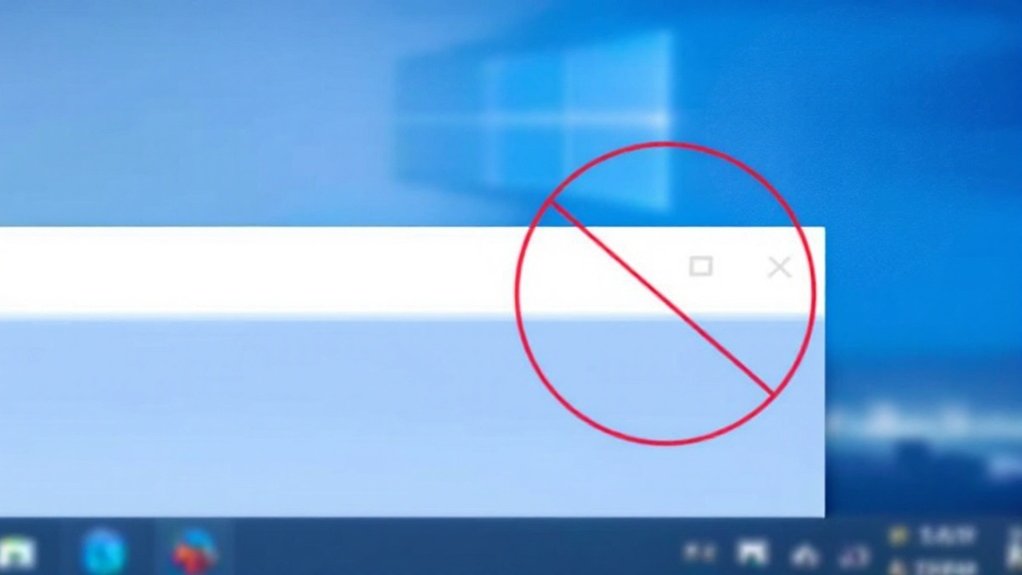Becoming a Certified Ethical Hacker requires meeting specific eligibility criteria, including being 18 years old and having two years of information security experience or completing authorized training. Candidates must demonstrate proficiency in operating systems, TCP/IP protocols, and programming languages. The certification process involves either official EC-Council training ($2,199-$3,499) or self-study, culminating in a four-hour exam with 125 multiple-choice questions. Security professionals can expect salaries averaging $119,295 annually, with extensive opportunities across various industries. The path to certification encompasses numerous technical aspects worth investigating.

Steering the path to becoming a Certified Ethical Hacker (CEH) requires dedicated preparation, technical expertise, and an extensive understanding of cybersecurity principles. The certification, administered by EC-Council, validates professionals’ abilities to identify system vulnerabilities and implement network security measures through legal and ethical means.
Certified Ethical Hackers protect networks by mastering cybersecurity principles and identifying vulnerabilities through legal methods approved by EC-Council.
Candidates must meet specific eligibility requirements before pursuing certification. The minimum age requirement is 18 years, with two years of information security experience necessary for qualification. Alternatively, completion of an official training course can substitute for the experience requirement, whereas a bachelor’s degree in a related field, though beneficial, is not mandatory. The EC-Council’s comprehensive 340 attack technologies are covered during training.
Technical proficiency forms the foundation of CEH preparation. Candidates must demonstrate expertise in operating systems like Windows and Linux, possess working knowledge of TCP/IP protocols, and maintain competency in programming languages such as C, C++, Java, and Python. Understanding network architecture, security protocols, and encryption methods is similarly vital for success. Aspiring ethical hackers can gain valuable hands-on experience through CTF challenges and bug bounty programs.
The certification process offers two distinct paths: official EC-Council training courses, ranging from $2,199 to $3,499 USD, or a self-study option for experienced professionals, requiring an exam fee of $950-$1,199 USD.
The thorough examination consists of 125 multiple-choice questions, to be completed within four hours, covering five key areas of ethical hacking.
Preparation involves extensive study of official EC-Council courseware, hands-on practice with vulnerability testing tools like Metasploit and OpenVAS, and participation in practical labs and simulations. Successful candidates typically engage in study groups and online forums while regularly reviewing sample questions and practice exams.
The certification opens doors to various career opportunities, including positions as security analysts, penetration testers, and security consultants, with an average base salary of $119,295 per year in the United States.
Professional growth potential extends to senior security positions across various industries and government agencies, though continuous learning and skill updating remain critical for long-term success in this rapidly evolving field.
Frequently Asked Questions
How Much Do Certified Ethical Hackers Typically Earn per Year?
Certified ethical hackers earn between $91,470 and $147,108 annually, with salaries varying based on experience level and location. Entry-level positions start around $93,317, whereas experienced professionals with 10+ years can command up to $154,000.
Additional compensation often includes bonuses of $15,000-$20,000. Those holding CEH credentials average $86,436 in base pay, with opportunities for advancement and freelance work through bug bounty programs.
Can I Learn Ethical Hacking Without a Computer Science Background?
Though a computer science degree can be helpful, individuals can successfully learn ethical hacking without a formal CS background.
Many professionals enter the field through self-study, bootcamps, and certification programs. Key requirements include strong analytical skills, dedication to learning technical concepts, and practical experience through platforms like Hack The Box.
Industry surveys indicate that 26% of ethical hackers lack traditional computer science degrees but succeed through focused skill development and hands-on practice.
Are There Age Restrictions for Becoming a Certified Ethical Hacker?
CEH certification requires candidates to be at least 18 years old to take the official training and exam.
Exceptions exist for minors who obtain written parental consent and a supporting letter from an accredited educational institution.
The age restriction guarantees ethical maturity and responsibility, aligning with industry standards for professional certifications.
Whereas there is no maximum age limit, EC-Council reviews minor applications individually to maintain program integrity.
Which Programming Languages Are Most Important for Ethical Hacking?
Python stands as the most vital programming language for ethical hacking, offering extensive libraries for security testing and automation.
JavaScript proves critical for web application security assessment, whereas SQL facilitates database vulnerability testing and analysis.
C/C++ provides necessary low-level access for system exploitation and memory manipulation.
These languages, when combined, form the core technical foundation for conducting thorough security assessments and penetration testing.
Do Government Agencies Hire Certified Ethical Hackers?
Multiple U.S. government agencies actively recruit Certified Ethical Hackers (CEHs), offering salaries ranging from $72,965 to $128,956.
The CIA, FBI, NSA, DHS, and Department of Defense employ ethical hackers in roles including cybersecurity research, special agent positions, and penetration testing.
These positions typically require U.S. citizenship, relevant academic credentials, professional certifications, and the ability to obtain security clearance.
The federal sector provides extensive benefits packages and opportunities for career advancement in cybersecurity.









